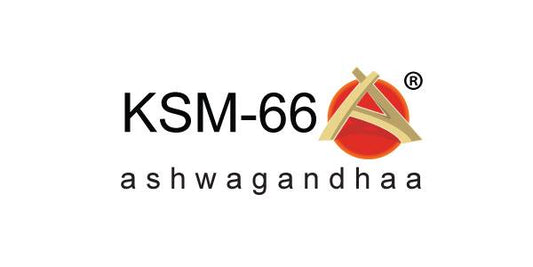With so many advertisements slyly offering “One Simple Trick!” to boost your testosterone or “One Food You Can Eat!” to maximize your masculine physique, it’s easy to believe that such a panacea exists....
...That there exists a singular substance that can solve all of a man’s health and fitness issues.
Of course, this is all wishful thinking.
But that isn’t to say that there aren’t immense lifestyle advantages to be gained from adding a single ingredient or supplement to your daily routine.
Adding MCT oil to your morning coffee can drastically improving your brain health and cognitive function.
Taking creatine can help supercharge your exercise strength and stamina.
And, yes, supplementing D-aspartic acid, an amino acid and natural testosterone booster, can significantly help mature men restore youthful levels of masculine vigor, vitality, and performance.
Though an effective, powerful T-booster, it’s best to take D-aspartic acid as part of a comprehensive testosterone boosting formula.
Testo Lab Pro, the best all-in-one T-booster formula, stacks D-aspartic acid with other effective T-boosters, such as ashwagandha extract, Mucuna pruriens, and luteolin, for complete, comprehensive T-raising action.
But to understand how DAA fits within a natural T-boosting regimen, we need to first go over:
- What exactly is D-aspartic acid
- How DAA works
- The best natural T-booster ingredients to stack with DAA to help sustain this amino acid’s bio-benefits while mitigating its potential downsides.
With that in mind, let’s start here:
What is D-Aspartic Acid?
Simply put, D-aspartic acid (DAA) is an amino acid.
However, whereas amino acids are typically prized for their anabolic muscle-building properties (amino acids are the building blocks of proteins), D-aspartic acid is perhaps best known for its effects on testosterone production.
Almost all amino acids come in two “mirrored opposite” forms. For aspartic acid, those two forms are D-aspartic acid and L-aspartic acid.
Think of its as the difference between your left and right hand: identical but opposite.
Whereas L-aspartic acid is primarily used to build proteins, D-aspartic acid regulates the synthesis and secretion of key hormones, including those involved in the production of testosterone.
With that in mind, D-aspartic acid is itself synthesized by the body, meaning that it’s not “essential” in the way that amino acids found in EAA (essential amino acids) and BCAA (branched-chain amino acids) supplements are.
Essential nutrients must be acquired through the diet, whereas non-essential nutrients can be synthesized.
However, this isn’t to suggest that DAA supplementation is therefore “beside the point” when it comes to optimizing testosterone status. In fact, supplementing DAA can be an incredibly effective T-boosting strategy, especially as age-related testosterone decline begins affecting the body’s natural T-producing capacity.
Here’s how D-aspartic acid affects testosterone status:
D-Aspartic Acid’s Effects on Testosterone
Unlike many other aminos of interest, D-aspartic acid doesn’t directly contribute to anabolic muscle growth by building protein but rather elevates testosterone status, which in turn contributes to greater anabolic bioactivity across-the-board.
DAA influences testosterone expression, which in turn influences muscle growth and repair, strength performance, sexual health, and then some.
As a hormone regulator, DAA encourages the production of testosterone via triggering a chain reaction of hormonal events within the hypothalamus-pituitary-gonad (HPG) axis.
Here’s a rough play-by-play of this chain reaction:
- DAA stimulates the hypothalamus to release gonadotropin-releasing hormone (GnRH);
- GnRH then encourages the pituitary gland to increase the synthesis and secretion of follicle-stimulating hormone (FSH) and T-helper luteinizing hormone (LH);
- FSH and LH respectively promote the production of sperm and testosterone in the Leydig cells of the testes.
Research on DAA’s effects on testosterone are promising. One study in particular has observed a significant increase in LH by 33% and testosterone levels by 42% after roughly two weeks of consecutive supplementation, as well as an increase in human growth hormone (HGH) and sperm count.
However, because DAA is somewhat of a sex hormone supercharger, meaning that it elevates the release of ALL sex hormones, it’s important to stack DAA with other ingredients, namely an estrogen blocker that helps inhibit the conversion of testosterone to estrogen.
Adding a DAA supplement to your daily routine should also come paired with other natural, diversely acting T-boosting ingredients for a comprehensive optimization of your male sex hormone status.
Other Ingredients DAA is Commonly Taken With
Taking a DAA supplement can significantly help you sustain optimal testosterone activity.
But taking DAA alone won’t completely get the job done.
This is why taking a pre-made all-in-one T-booster stack, such as Testo Lab Pro, is key to fully optimizing your masculine health.
With that in mind, some of the best natural T-boosters to stack with D-aspartic acid include:
Mucuna Pruriens
A long valued traditional herb, Mucuna pruriens, also known as “velvet bean,” is rich in L-DOPA (levodopa), a pro-dopamine amino acid believed to help support testosterone and masculine health.
Research suggests that L-DOPA, similar to DAA, promotes testosterone status by triggering a chain reaction within the HPG axis: (1) L-DOPA stimulates GnRH, which (2) stimulates FSH and LH secretion, which, (3) respectively stimulates sperm and testosterone production.
- By engaging the HPG axis, L-DOPA from Mucuna pruriens may elevate LH and testosterone activity, improving male vitality and reproductive health.
In addition to promoting testosterone, Mucuna pruriens also seems to possess adaptogenic (stress modifying) characteristics.
In a 2010 study on the effects of Mucuna pruriens on infertile men under considerable psychological stress, Mucuna pruriens was found to be effective at reducing both psychological and oxidative stress, while improving sperm count and motility.
Ultijmately, this led the researchers to conclude that “M. pruriens not only reactivates the anti-oxidant defense system of infertile men but it also helps in the management of stress and improves semen quality.”
For both reproductive health and athletic performance, Mucuna pruriens is a smart choice.
Vitamin D
As our understanding of the immune system increases, our appreciate for vitamin D only increases more.
Getting adequate sunlight exposure is key not only to a healthy, active lifestyle but acquiring sufficient vitamin D levels …which, yes, are fundamental to a healthy, active lifestyle.
However, what’s often underappreciated about vitamin D is this micronutrient’s direct correlation with testosterone status.
Though the mechanism is relatively unknown, the effect of vitamin D is fairly well-documented: no vitamin D, no testosterone.
This is likely due to the high concentration of vitamin D receptors in the testes, as observed by clinical research that purports that “vitamin D plays a major role in male steroidogenesis in vitro.”
Likewise, another study has observed increases in total and free testosterone, as well as erectile function, with vitamin D replenishment, signaling the importance of vitamin D to male sexual health.
Ashwagandha
Prized as a legendary herb of the ancient Ayurvedic health tradition, Ashwagandha is one of the more multipurpose herbal male boosters, thanks to this plant’s unique mixture of adaptogenic (stress relieving) and antioxidant properties.
Respectively, the T-boosting benefits of these properties are as follows:
- Adaptogenic – as an adaptogen, ashwagandha helps mitigate the negative T-diminishing side effects of excess stress by promoting homeostasis of stress-related hormones, such as cortisol.
- Antioxidant – supplying a rich concentration of antioxidants, ashwagandha helps combat oxidative stress (free radicals) in the testes, potentially providing a protective effect on the testes’ T-producing cells.
Altogether, the adaptogenic and antioxidant properties of ashwagandha result in anabolic hormonal balance in favor of enhanced muscular strength and performance, as well as improved body composition and cognitive relaxation.
Look for KSM-66®: plain powder ashwagandha is good, but KSM-66® ashwagandha extract is better. Supplying a potent extract standardized to 5% withanolides, the bioactive constituents of ashwagandha root, KSM-66® is the most effective and most researched ashwagandha currently on the market.
Luteolin
Because DAA is a hormone supercharger, meaning that it elevates sex hormones across the board, it’s important to pair DAA with a natural estrogen blocker. And the best estrogen blocker for the job is Luteolin, a plant-sourced antioxidant found in many fruits and vegetables that’s most treasured as an aromatase inhibitor.
Why do we want to inhibit aromatase? Because as the enzyme responsible for converting testosterone to estrogen, aromatase threatens to morph your DAA-influenced testosterone gains into female sex hormones associated with unwanted side effects, such as gynecomastia (man boobs).
With luteolin, blocking aromatase may help optimize DAA’s sex hormone support advantages, maintain youthful androgen levels in the face of age-related aromatase spikes, and protect circulating bioactive testosterone for optimal T effects.
D-Aspartic Acid Dosage for Testosterone
For temporary boosts in testosterone, many studies have found improvements with a daily DAA dose of 1,500 – 3,000 mg.
However, research suggests that these boosts are only effective for a short period of time, and that excessively high dosages of DAA, numbering up in the 6,000 mg range, may actually work counterproductively.
In other words, too much DAA may negatively impact testosterone status.
This is why Testo Lab Pro supplies 300 mg of an enhanced DAA form called D-aspartic acid calcium chelate (D-AA-CC).
As opposed to standard DAA, D-AA-CC has a greater potency and, therefore, much lower dosage requirement.
And so for healthy, ongoing testosterone support, a daily dose of 300 mg D-AA-CC seems to work best.
This dosage also has the added advantage of eliminating the need for cycling (e.g., two weeks on, two weeks off) that’s otherwise suggested for many other T-booster stacks that unnecessarily rely on excessively high and risky dosages.
DAA Full Benefits and Side Effects
Every supplement has its upsides and its downsides, especially really effective supplements.
Typically, the more effective an ingredient, the more side effective that ingredient. Hence why it’s important to take DAA at a moderate dosage with other natural ingredients that help support DAA’s bio-benefits while mitigating its potential side effects.
Having said that, DAA’s status as a natural ingredient grants it a much greater safety rating than the likes of, say, illicit anabolic steroids.
But, even so, it’s worth considering all the benefits and potential side effects associated with DAA to get a better, fuller picture of this natural T-booster.
Benefits
If we were to catalogue all of the direct and indirect benefits of optimizing your testosterone status, we’d be here all day.
Instead, we’ll list through several of the key benefits of supplement D-aspartic acid for testosterone, followed by a couple side effect risks to look out for.
With that in mind, let’s start here:
Testosterone Production
The key theme of this article: DAA promotes T synthesis. By working both within the testes and within the central brain region, co-facilitating both ends of the HPG axis, D-aspartic acid offers greater top-to-bottom sex hormone regulation than many other testosterone boosting ingredients. This involves the promotion of testosterone, as well as pro-testosterone hormones such as GnRH and LH.
Reproductive Health
For many men, poor sperm quality can be a serious hitch in one’s reproductive plans. Much of male fertility depends upon sperm quality, which includes such measures as sperm count, sperm morphology, sperm motility, and semen volume. In addition to promoting LH production and secretion, DAA seems to also benefit follicle-stimulating hormone (FSH), which is important to the production and quality of sperm, resulting in greater male fertility.
Anabolic Muscle Growth and Repair
Primarily favored among bodybuilders for its T-boosting effects, DAA is also valued for its promotion of human growth hormone, an anabolic hormone that works with testosterone to encourage muscular growth, development, and repair following high-intensity exercise and resistance training. Taken as part of a rigorous exercise routine, DAA can significantly help enhance anabolic muscle growth for greater increases in strength performance.
Sex Drive and Libido
What’s the point of an enhanced reproductive system if you lack the sex drive and libido to even engage in the reproductive act? Not to scare you all with the “reproductive” aspects of sex—we understand that there are non-procreative intentions to the act—but the libido-enhancing properties of testosterone boosting are certainly welcome among men, especially considering the overlap between sex drive and general vitality and energy among men.
Potential Side Effects
If you stick to 300 mg D-AA-CC in a stack with the aforementioned natural testosterone boosters, your risk of side effects is low. In general, DAA is a safe testosterone booster with low reports of side effects.
However, excessively high DAA dosages may run you into the following problems:
Sex Hormone Imbalance
As already mentioned, aromatase is an enzyme that converts testosterone (male sex hormone) into estrogen (female sex hormone). Under conditions of high testosterone, the potential for excessive T-to-estrogen crossover is understandably high. This, again, is why it’s important to stack DAA with a natural aromatase inhibitor, such as luteolin, to help counteract any potential estrogen imbalance and (yes) man boob growth.
Emotional Issues
The stereotype of the easily angered “roid junkie” beefcake isn’t too off-base: excess testosterone can make men feel irritable and angry at the slightest provocation, due to the heightened aggression associated with testosterone. Though rare, there have been reports of heightened irritability, headache, and nervousness with DAA supplementation.
Summary: Is D-Aspartic Acid Able to Increase Testosterone Levels?
Quick Answer: Yes, D-aspartic acid is able to increase testosterone levels.
Especially for mature men on the “decline” side of age-related testosterone decline, DAA can be a powerful tool for elevating youthful levels of testosterone and masculine vitality.
However, much of the success of DAA relies upon how you use DAA.
So long as you stay within a reasonable dosage range (for Testo Lab Pro, that’s 300 mg of enhanced potency D-AA-CC) and take DAA with a smart stack of natural T-boosters (Mucuna pruriens, ashwagandha, luteolin, etc.), then your DAA experience will be nothing but positive.
Typically, around your late-20’s and early-30’s is when most men begin to experience the downsides of age-related testosterone decline. So, if you’re wondering whether or not DAA is right for you and you fall within this age range, it’s not a bad idea to consider giving it a try.
With Testo Lab Pro, you’ll get not only an advanced form of DAA, as D-AA-CC, at a modest daily dosage but also a select range of premium natural T-boosting extracts and “testosterone essential” micronutrients, such as probiotic-enhanced zinc, vitamin D, boron, and so on.
This is a great source of DAA and a great T-booster altogether for all mature men seeking a healthier, more active daily lifestyle.
References
- Zheng X et al. Distinguishing D- and L-Aspartic and Isoaspartic Acids in Amyloid β Peptides with Ultrahigh Resolution Ion Mobility Spectrometry. Chem Commun (Camb). 2017 Jul 11; 53(56): 7913-7916.
- Plant TM. The hypothalamo-pituitary-gonadal axis. J Endocrinol. 2015 Aug; 226(2): T41-T54.
- Nisio AD et al. D-Aspartic acid stimulates steroidogenesis through the delay of LH receptor internalization in a mammalian Leydig cell line. J Endocrinol Invest. 2016 Feb; 39(2): 207-13.
- Topo E et al. The role and molecular mechanism of D-aspartic acid in the release and synthesis of LH and testosterone in humans and rats. Reprod Biol Endocrinol. 2009; 7: 120.
- Shukla KK et al. Mucuna pruriens improves male fertility by its action on the hypothalamus-pituitary-gonadal axis. Fertil Steril. 2009 Dec; 92(6): 1934-40.
- Shukla KK et al. Mucuna pruriens Reduces Stress and Improves the Quality of Semen in Infertile Men. Evid Based Complement Alternat Med. 2010 Mar; 7(1): 137-144.
- Hofer D et al. Testicular synthesis and vitamin D action. J Clin Endocrinol Metab. 2014 Oct; 99(10): 3766-73.
- Tirabassi G et al. Vitamin D and Male Sexual Function: A Transversal and Longitudinal Study. Int J Endocrinol. 2018; 2018: 3720813.
- Chandrasekhar K et al. A prospective, randomized, double-blind, placebo-controlled study of safety and efficacy of a high-concentration full-spectrum extract of ashwagandha root in reducing stress and anxiety in adults. Indian J Psychol Med. 2012 Jul; 34(3): 255-62.
- Alam N et al. High catechin concentrations detected in Withania somnifera (ashwagandha) by high performance liquid chromatography analysis. BMC Complement Altern Med. 2011; 11: 65.
- Balunas MJ et al. Natural Products as Aromatase Inhibitors. Anticancer Agents Med Chem. 2008 Aug; 8(6): 646-682.
- Lu DF et al. Inhibitory effect of luteolin on estrogen biosynthesis in human ovarian granulosa cells by suppression of aromatase (CYP19). J Agric Food Chem. 2012 Aug 29; 60(34): 8411-8.
- Martin LJ, Touaibia M. Improvement of Testicular Steroidogenesis Using Flavonoids and Isoflavonoids for Prevention of Late-Onset Male Hypogonadism. Antioxidants (Basel). 2020 Mar; 9(3): 237.
- Macchia G et al. DL-Aspartic acid administration improves semen quality in rabbit bucks. Anim Reprod Sci. 2010 Apr; 118(2-4): 337-43.
- Melville GW et al. Three and six grams supplementation of d-aspartic acid in resistance trained men. J Int Soc Sports Nutr. 2015; 12: 15.















